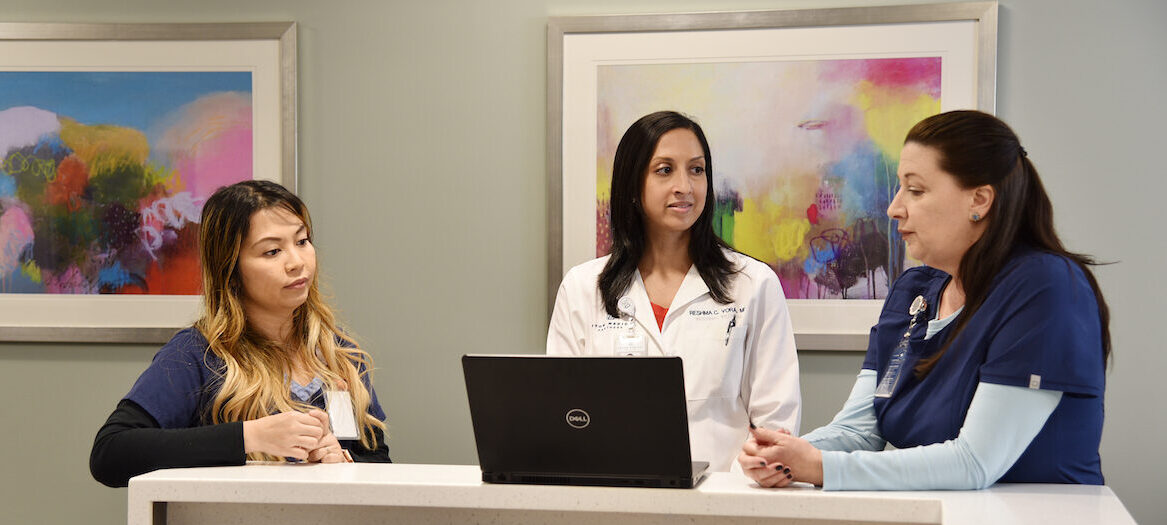 You may have heard the term “value-based medicine” and (like many healthcare terms), not fully understood its meaning. That’s for good reason, unless you pay close attention to the rising cost of medicine, health insurance and reimbursement rates, the Centers for Medicare & Medicaid Services’ voluntary Medicare Shared Savings Program, or accountable care organizations and the like. Is your head spinning yet?
You may have heard the term “value-based medicine” and (like many healthcare terms), not fully understood its meaning. That’s for good reason, unless you pay close attention to the rising cost of medicine, health insurance and reimbursement rates, the Centers for Medicare & Medicaid Services’ voluntary Medicare Shared Savings Program, or accountable care organizations and the like. Is your head spinning yet?
There’s a lot to know about value-based medicine, but what’s probably most important to you is how it will make you healthier or lead to a better outcome for you and your family.
There’s a long way to answer that question, but there’s also a “Tryon” way to answer that question.
The “Tryon” way
You chose Tryon Medical Partners because you know we place great importance on the relationship you have with your care team. We are personally invested in keeping you healthy and safe, because we are personally invested in you. Our goal is to learn as much as we can about you, by listening and giving you the time to share your concerns. When something worries you, we work together on a plan to find the best solution. If you need more care, we have clinicians in eight specialty areas working in lockstep with your primary care team. Beyond that, we empower and support you to get the care you need.
The better you feel, the better we feel. Because we care. This model also happens to be a great way to make healthcare less expensive and more accessible for everyone. Ready for that long answer?
Defining value-based medicine
Value-based medicine is a healthcare model that holds clinicians accountable for the quality of care we deliver. It is a model that focuses on improving patient outcomes, both from an efficiency and effectiveness standpoint. This is different from a traditional fee-for-service model whereby clinicians and hospitals are rewarded for each service they provide, whether or not those services yield better results. With value-based medicine, clinicians are focused on providing quality care, not just more of it.
What better care looks like
Value-based care programs are looking for clinicians to provide high-quality care that is equitable and avoids costly care, like what you would receive in the emergency department. High-quality care is evidence-based and corresponds with each patient’s values, preferences and needs. Great care also ensures equity, the principle that high-quality care should be provided to everyone regardless of race, gender or income. Part of quality is also efficiency (avoiding unnecessary tests and procedures) and timeliness, avoiding long wait times for care.
Tryon’s Chronic Care Management program
Tryon’s Chronic Care Management (CCM) program is specifically designed to support Medicare and Medicare Advantage patients with chronic conditions, defined broadly by the Centers for Disease Control and Prevention as “conditions that last one year or more and require ongoing medical attention or limit activities of daily living, or both.” Tryon developed this program to provide specialized support for patients managing conditions like heart disease, cancer and diabetes.
The CCM team includes a registered nurse, pharmacist and health advocate working directly with patients to develop an individualized care plan tailored to their specific illness. The team keeps up with these patients regularly, giving them the tools they need to better manage their conditions at home. The team coordinates this care with the patient’s primary care clinician and specialists, and is available 24/7 if emergencies arise. Patients interested in learning more about this program can call 704-800-5665 to speak to a member of Tryon’s CCM team.
Providing a little extra care to these patients can make a big difference, improving their daily quality of life and avoiding emergency care.
Is this value-based medicine? Sure, but it’s also the right thing to do. CCM is just one of the many ways Tryon puts value-based medicine into practice. Tryon broke away from big healthcare to offer better healthcare, which is more effective and efficient, for everyone.
Remember that if you are having a medical emergency, you should call 911 or proceed to your nearest emergency department.
